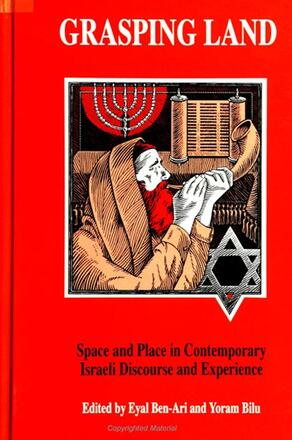
Grasping Land
Space and Place in Contemporary Israeli Discourse and Experience
Alternative formats available from:
Examines the discourses and experiences associated with space and place in contemporary Israel.
Description
This volume explores various processes associated with constructing what has variously been called "The Holy Land," "Eretz Israel," "Zion," Palestine," or "Israel. " The contributors focus on ways the landscapes of Israel figure in creating and recreating the identity, presence, and history of groups living there. The book critiques the assumptions lying at the base of various spatial practices related to Zionism. It does this through both a theoretical examination and a focus on hitherto little explored phenomena such as pilgrimages of Israelis to their (or their relatives') native lands abroad, the establishment of Jewish saints' tombs in Israel, the design of Kibbutz museums, country hikes, and conceptions of territory in mixed (Jewish-Arab) communities.
Eyal Ben-Ari is Associate Professor and Yoram Bilu is Professor in the Department of Sociology and Anthropology at The Hebrew University of Jerusalem. Ben-Ari has also written Changing Japanese Suburbia: A Study of Two Present-Day Localities; Organization and Culture in Japanese Children: An Interpretive Study; and Body Projects in Japanese Childcare: Culture, Organization and Emotions in a Preschool. Bilu is the author of Without Bounds: The Life and Death of Rabbi Ya'acov Wazana.
Reviews
"Grasping Land is an outstanding effort for which the editors are to be commended. Not only are the articles clearly written, absorbing, original and unusual with respect to the anthropological literature of the Middle East generally and Israel in particular, but they open up new vistas in thinking about nationalism, political systems and the ethnography of complex society. What truly sets this volume apart from many other collections, is the brilliant explanatory essay by the editors. " — Laurence D. Loeb, University of Utah
"I am particularly impressed with the richness of the case material and the sophisticated manner in which it is utilized to explicate the common themes. The topic is of great intrinsic significance for anyone interested in contemporary Israel. The book is highly original and important. " — Leonard Kasdan, Dalhousie University